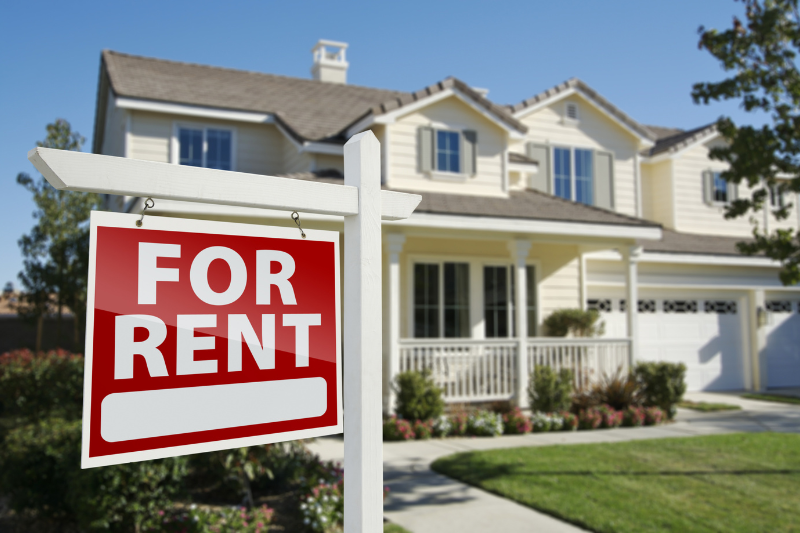In the perennial debate of renting versus buying a home, the scales are increasingly tipping…
Renting vs Buying a Home in Denver
Navigating Denver’s dynamic housing market requires you to carefully consider whether to rent or buy a home. It is a major decision with long-term implications for your financial situation. Understanding fluctuating interest rates and property taxes is crucial. Knowing each option’s pros and cons helps you find the ideal housing solution that aligns with your lifestyle and budget. This comprehensive guide will provide you with the information and insights to make a well-informed decision.
At A Glance: The Denver Housing Market
Denver’s real estate is influenced by many factors: a thriving job market, population growth, and limited housing inventory. These factors make the market competitive, so prospective buyers and renters must thoroughly research current trends. It’s Important to recognize that this analysis only provides a general overview. Keep in mind that the Denver housing market constantly changes and specific neighborhood trends can significantly influence your experience.
Current Trends in Homeownership
While homeownership rates nationally are around 65 percent, Denver’s numbers are slightly lower. However, the desire to own a home in Denver remains strong. This demand, coupled with factors like limited inventory and rising construction costs, has pushed housing prices upward in recent years.
For those considering entering the Denver real estate market as buyers, consulting with a knowledgeable real estate agent is highly recommended. A real estate agent can provide valuable insights into neighborhood-specific trends, market fluctuations, and help you navigate the complexities of buying a home. By staying informed about the latest trends, you can make strategic decisions whether you’re aiming to buy your dream home or secure a comfortable rental property.
The Rental Landscape in Denver
Denver’s rental market mirrors its competitive housing market, with high demand often exceeding available inventory. This can lead to a rise in monthly rent prices, particularly in desirable neighborhoods. Before entering the rental market, it’s essential to research different neighborhoods and their rental rates to get an accurate understanding of the cost of renting in your desired location.
While renting offers flexibility and can be an excellent option for short-term stays, it’s still crucial to consider the long-term financial implications. Unlike owning, where you invest your money in a tangible asset that can appreciate in value, renting primarily covers your housing expenses without building equity.
Despite the potential downsides, renting remains a viable option for those who prioritize flexibility or are not yet ready for the financial commitment of homeownership.
Advantages of Buying a Home in Denver
Buying a home in Denver, as in other cities, goes beyond simply finding a place to live; it’s often considered a significant investment. From the potential for property appreciation to the various tax benefits associated with homeownership, there are undeniable advantages.
However, it’s equally important to remember that homeownership comes with responsibilities, including property maintenance and unexpected repairs. Weighing the advantages and disadvantages of buying versus renting in Denver’s dynamic market is key to making a decision that aligns with your needs and aspirations.
Building Equity Over Time
One of the most significant advantages of homeownership is the opportunity for building equity. As you consistently make mortgage payments, you gradually pay down the principal amount of your loan, increasing your ownership stake in the property. Unlike rent payments, which primarily cover your living expenses, mortgage payments contribute to building a tangible asset that can generate financial gains in the future.
While home values can fluctuate due to market dynamics, historically, Denver real estate has shown a positive trend of appreciation. This means that over time, your home has the potential to increase in value, leading to potential financial gains if you decide to sell.
For many homeowners, building equity is a form of forced savings. Each mortgage payment represents an investment in an appreciating asset, providing financial security and contributing to long-term wealth accumulation.
Tax Benefits and Deductions
In addition to building equity, homeowners in Denver can benefit from substantial tax breaks associated with homeownership. Mortgage interest deduction, for instance, can significantly reduce your federal tax liability by allowing you to deduct the interest paid on your mortgage from your taxable income.
It’s essential to understand how the standard deduction might affect your tax benefits. If your itemized deductions, including the mortgage interest deduction, exceed the standard deduction amount, opting to itemize can lead to substantial tax savings.
Consult with a qualified tax advisor to determine the most advantageous tax strategy for your situation.
Long-Term Financial Gains
Beyond potential tax benefits, owning a home in Denver opens doors to various long-term financial gains opportunities. For example, if your home appreciates in value over time, you may be eligible for significant capital gains exclusions when you eventually sell. Additionally, homeownership provides access to financial tools like home equity loans, allowing you to leverage your home’s value to achieve other goals.
You can use a home equity loan for various purposes, like home improvements, debt consolidation, or funding significant expenses, offering flexibility and potential cost savings.
However, like any financial decision, carefully weigh the risks and benefits before accessing these financial tools, ensuring they align with your long-term financial goals.
The True Costs of Homeownership
While homeownership boasts numerous advantages, it’s equally crucial to acknowledge the true costs associated with owning a home in Denver. Many first-time homebuyers are often unprepared for the array of expenses that extend beyond the monthly mortgage payment.
To avoid financial strain, potential homeowners must factor in recurring costs such as property taxes, homeowners insurance, maintenance, and potential HOA fees. Understanding the full scope of homeownership allows for a realistic assessment of affordability and prevents surprises down the line.
Initial Investment and Down Payments
One of the most substantial upfront costs associated with buying a home in Denver is the down payment. A down payment is a percentage of the home’s purchase price that you pay upfront, which can range from 3.5% to 20% or more, depending on the loan type.
In addition to the down payment, expect to encounter various closing costs, which encompass loan origination fees, appraisal fees, title insurance, and more. Closing costs typically add up to 2-5% of the home’s value, so saving sufficiently to cover these expenses is crucial.
Remember that upfront costs are a necessary part of the home-buying process, and preparing for them from the outset ensures a smoother transition into homeownership.
Ongoing Maintenance and Unexpected Repairs
Beyond your monthly mortgage payment, budgeting for regular maintenance and potential unexpected repairs is vital. Maintenance costs include routine tasks such as landscaping, gutter cleaning, and general upkeep to prevent more significant issues from arising.
On the other hand, unexpected repairs, like a leaking roof or a faulty appliance, can put a strain on your budget if you’re unprepared. Allocating a portion of your monthly budget towards a dedicated home maintenance fund can act as a safety net for these unforeseen expenses.
By proactively addressing routine maintenance and having reserves for unexpected repairs, you can protect your home investment and ensure its longevity.
Property Taxes and Insurance
In addition to mortgage payments, you’ll also be responsible for property taxes in Denver. Property taxes are calculated based on your home’s assessed value and contribute to funding essential community services. Understanding the property tax rates in your desired neighborhood is essential to avoid surprises when it comes to annual tax bills.
Equally important is homeowners insurance, which financially protects your property and belongings in unforeseen events such as fire, theft, natural disasters, or liability claims. Depending on your loan terms and down payment amount, you might also be required to pay private mortgage insurance.
Private mortgage insurance (PMI) protects the lender if you default on your mortgage and is typically required until you’ve built up a certain amount of equity in your home.
Renting in Denver
Renting in Denver can potentially offer advantages over homeownership, especially for those seeking flexibility and lower upfront costs. With a rental property, you’re not bound by the long-term financial obligations or home maintenance responsibilities that come with owning a property.
Renting is especially attractive to those who might not be ready to settle down or who prioritize exploring different neighborhoods before committing to a specific location. Understanding both the advantages and constraints of renting in Denver will help you determine the best housing strategy for this stage of your life.
Flexibility and Mobility
One of the most significant advantages of renting is the flexibility and mobility it provides. Unlike homeownership, which ties you to a specific location, renting allows you to relocate with ease when your lease agreement expires.
This is especially advantageous for young professionals, those new to Denver, and individuals who prioritize exploring diverse career opportunities or lifestyle changes. Renting provides a temporary housing solution without the long-term commitment of homeownership.
With greater mobility, you can experience different Denver neighborhoods, discover hidden gems, and ultimately determine the best fit for your long-term goals.
No Maintenance Worries
Unlike homeowners, renters are typically relieved from the burden of property maintenance and unexpected repairs. As a renter, your landlord shoulders those responsibilities, leaving you free from the time, effort, and cost associated with maintaining a property.
While renters insurance is recommended to protect your personal belongings, it is considerably less expensive than homeowners insurance. The “no maintenance” aspect of renting allows you to divert your time, energy, and financial resources toward other opportunities.
You can view this as an opportunity cost, where the time and money saved on maintenance can be used to pursue your personal and professional goals.
Making the Decision: Rent or Buy?
The “rent or buy” dilemma is unique to every individual’s circumstances and requires careful consideration of multiple factors. No one-size-fits-all approach works when making this significant decision. It’s crucial to weigh the financial implications, lifestyle preferences, and long-term goals before reaching a conclusion. Remember, thorough research and advice from financial and real estate professionals empower you to make well-informed decisions.
Assessing Your Financial Readiness
Before diving into the Denver housing market, taking an honest assessment of your financial readiness is essential. Begin by reviewing your credit score, as it significantly determines the interest rates and loan terms offered by mortgage lenders. Maintaining a good credit score is vital for securing a favorable mortgage.
Besides a good credit score, consider factors like your employment history and job security. Lenders assess your financial stability to ensure your ability to make timely mortgage payments.
Remember that being financially prepared not only increases your chances of qualifying for a loan but also ensures a smoother, less stressful buying process.
Lifestyle Considerations and Future Plans
Beyond financial aspects, aligning your housing decision with your lifestyle and future plans is equally crucial. If you value flexibility and expect career changes or relocations soon, renting might be better for now. However, buying makes sense if you plan to settle down long-term and seek stability.
Consider your lifestyle needs as well. If yard work or home repairs don’t appeal to you, renting might free up time for your interests. But if personalizing your space and settling down is essential, owning a home might be more fulfilling.
Remember that your lifestyle preferences and future plans are crucial considerations and should not be overshadowed by financial aspects alone.
How Mortgage Rates Affect Your Choice
Mortgage rates play a critical role in determining the overall affordability of homeownership. With interest rates on an upward trend, your monthly mortgage payment could fluctuate significantly based on prevailing interest rates.
Higher interest rates can increase mortgage payments, affecting affordability and making renting more appealing. However, it’s important to remember that interest rates are cyclical and can change over time.
Consulting a mortgage professional offers insights into loans, interest rates, and helps you choose the best financial option.
Frequently Asked Questions
Is it better financially to rent or buy in Denver?
The best financial decision between renting and buying in Denver varies based on your unique financial situation, the current housing costs, and long-term goals.
What should first-time homebuyers in Denver know about mortgages?
First-time homebuyers in Denver should compare mortgage options from different lenders to secure a favorable interest rate. Understanding the components of a mortgage payment and exploring down payment assistance programs is also crucial.
What are the hidden costs of buying a home in Denver?
Hidden costs of homeownership in Denver include property taxes, homeowner’s insurance, regular maintenance, and potential HOA fees.
Can you build wealth by investing in rental properties in Denver?
Investing in rental properties in Denver can be a viable option to build wealth, but it requires careful research, understanding of the housing market, and proper management to mitigate risks.
Conclusion
Deciding to rent or buy in Denver depends on factors like finances, lifestyle preferences, and future plans. Buying a home offers long-term financial gains and equity buildup, while renting provides flexibility and no maintenance worries. Consider your options carefully based on these aspects and how mortgage rates impact your decision. If you need guidance on mortgages or hidden costs of homeownership in Denver, our FAQs can offer valuable insights. Make an informed choice that aligns with your goals and ensures a stable housing situation in the vibrant Denver market.





